Recognising and developing technical talent: Strategies for growth and development
A conference hosted by the Royal Society in partnership with the UK Institute of Technical Skills & Strategy and Rolls-Royce.
This meeting will be hosted by the Royal Society and aims to promote and recognise the impact of technical professionals on research and development; to identify challenges to obtaining parity of esteem for technical career paths and to identify the role of technical professionals to meet the skills gaps to support innovation and increase productivity to meet current and future challenges for society and the economy.
Attending this event
This event is free to attend.
- Register to access the livestream online
- In-person attendance is limited and by invitation only. To request an invitation, please contact industry@royalsociety.org
Organisers
Schedule
| 09:20-09:30 |
Welcome remarks and introduction to keynote speaker
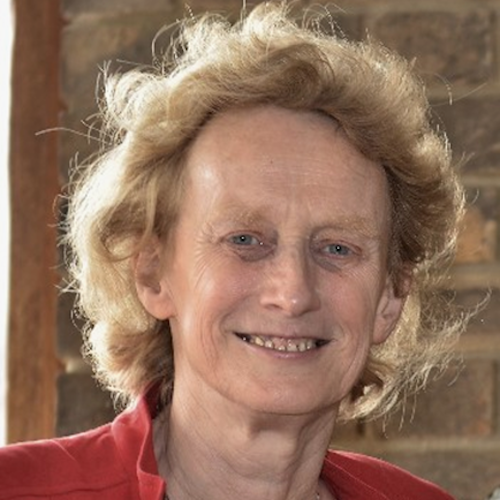
Professor Dame Athene Donald DBE FRS

Professor Dame Athene Donald DBE FRSAthene Donald is an emeritus Professor of Physics who is well known for her early work on synthetic polymers, concentrating on relating the structure of polymers to their function. Athene subsequently transferred her knowledge to soft matter and biological physics more broadly, developing specialised imaging techniques such as environmental scanning electron microscopy along the way. In synthetic polymers, she studied crazing — the fine cracks that precede fracture — by exploring what determines their formation. Subsequently, she utilised X-ray scattering techniques to characterise changes that occur in the natural polymer starch upon cooking and other forms of processing. More recently she explored universal behaviour in protein aggregation (in vitro). In 2006, she was the Bakerian Lecturer for the Royal Society. She won the 2009 L'Oreal/ UNESCO Laureate for Europe. In 2010 was awarded the Faraday Medal of the Institute of Physics and also received a DBE for services to physics. From 2013-18 she served on the Scientific Council of the ERC, and is Chair of REF2021 Interdisciplinary Advisory Council. Beyond her research, Athene has an active interest in issues surrounding gender equality and is a former Chair of the Athena Forum, which aims to improve the situation for women in science, technology, engineering and medicine in UK higher education. Athene has twice been a member of the Society’s Council and chaired the Education Committee from 2010-2014. |
|---|
| 09:30-09:50 |
Keynote
Professor Sir Jim McDonald GBE FREngUniversity of Strathclyde Professor Sir Jim McDonald GBE FREngUniversity of Strathclyde Professor Sir Jim McDonald joined Strathclyde University in 1984 following seven years in the power industry and was appointed to the Rolls-Royce Chair in Electrical Power Systems in 1993. He became Principal and Vice-Chancellor of the University of Strathclyde in March 2009. He chairs two of the pan-Scotland research pools in Engineering and Energy. He sits on the Scottish Enterprise Board and the UKTI Energy Excellence Board. He co-chairs - with the First Minister - the Energy Advisory Board. He is Chairman of the Independent Glasgow Economic Leadership Board and the Board of the Glasgow Science Centre. He is Vice-President of the UK’s Institution of Engineering and Technology and is a Non-Executive Director of the Offshore Renewable Energy Catapult Board. In the Queen’s Jubilee Birthday Honours List on 16 June 2012, Professor McDonald was awarded a Knighthood for services to education, energy and the economy. In September 2013 Professor McDonald received the “Outstanding Contribution as a Business Leader”, recognition at The Herald’s Inaugural Inspiring City Awards event. |
|---|
| 09:50-10:00 |
Overview from the organisers
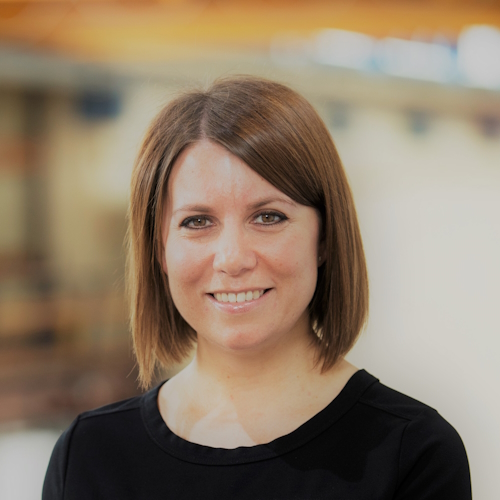
Dr Kelly Vere MBEUK Institute for Technical Skills & Strategy 
Dr Kelly Vere MBEUK Institute for Technical Skills & Strategy Dr Kelly Vere MBE, is the University Director of Technical Strategy at the University of Nottingham and a leading advocate for technical skills and careers in higher education and research. She began her career in 1999 as a Junior Medical Technician and now drives the strategic direction of the University’s 500+ technical colleagues. Kelly founded and leads the Technician Commitment, a sector-wide initiative promoting visibility, recognition, career development, and sustainability for technical professionals, with over 120 institutional signatories. She also led TALENT, a £5 million Research England-funded programme advancing technical careers, which included the TALENT Commission, a landmark study on the UK’s technical workforce. Now leading the new UK Institute for Technical Skills & Strategy (ITSS), Kelly continues to champion the technical community, shaping policy and opportunities across the sector. 
Professor Mark JefferiesRolls-Royce plc 
Professor Mark JefferiesRolls-Royce plc Mark brings extensive practical experience of establishing and developing complex, award winning industry-academic collaboration. He has led Rolls-Royce's strategic global academic partnerships for over a decade; a collaborative network that has grown to engage over 1,300 people including around 500 doctorate students at any one time. He has over 30 years' experience in engineering & technology roles, including leadership of multiple national and international collaborative research programmes. Mark serves on the governance boards of several multi-million pound research partnerships and works with related public and private organisations on matters of strategic investment, security, ethics, governance, and collaboration. Mark is an Honorary Professor at the University of Birmingham, a Visiting Professor at Loughborough University, a professional Chartered Engineer, a Fellow of the Royal Aeronautical Society and of the Institution of Mechanical Engineers, and is an Associate Fellow of the American Institute of Aeronautics and Astronautics. |
|---|
Chair
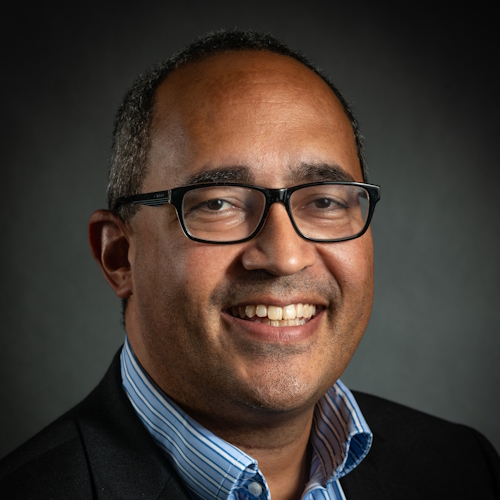
Luke Logan FREng
Luke Logan Consulting Ltd

Luke Logan FREng
Luke Logan Consulting Ltd
Luke Logan is a senior advisor and engineer with over 30 years’ experience in global engineering leadership, including executive roles at Rolls-Royce, BAE Systems, and the Weir Group.
A Fellow of the Royal Academy of Engineering, he now advises organisations on innovation, resilience, and technical excellence across the aerospace, defence, and industrial sectors.
Luke is a champion of technical careers, diversity, and inclusive leadership. He is committed to elevating the role of engineers in driving UK prosperity, security and innovation via actively supporting organisations in enabling technical talent.
| 10:10-10:20 |
Introduction from the chair

Luke Logan FREngLuke Logan Consulting Ltd 
Luke Logan FREngLuke Logan Consulting Ltd Luke Logan is a senior advisor and engineer with over 30 years’ experience in global engineering leadership, including executive roles at Rolls-Royce, BAE Systems, and the Weir Group. A Fellow of the Royal Academy of Engineering, he now advises organisations on innovation, resilience, and technical excellence across the aerospace, defence, and industrial sectors. Luke is a champion of technical careers, diversity, and inclusive leadership. He is committed to elevating the role of engineers in driving UK prosperity, security and innovation via actively supporting organisations in enabling technical talent. |
|---|---|
| 10:15-10:25 |
Title to be confirmed

Stuart EvansRolls-Royce plc 
Stuart EvansRolls-Royce plc Stuart Evans (BA Hons, Chartered FCIPD, CertPFS, CeMAP) is a commercially driven FTSE 20 People Director who is passionate about organisational & people development. Stuart combines futurology with a unique outlook on the human & technological capability development requirements of organisations to deliver sustainable commercial outcomes. Currently People Director – Future of Work, Capability & Learning at Rolls-Royce plc, Stuart has previously held similar positions at HSBC, QNB & Lloyds Banking Group – working in both the UK and overseas. Recent publications and awards include Stuart being featured in the ‘World Changers ’24’ report; having a published case study from Gartner on leadership strategy and winning the Brandon Hall Gold Award for Leadership Development in 2024. |
| 10:25-10:35 |
The Liverpool Research Technical Professional Career Pathway
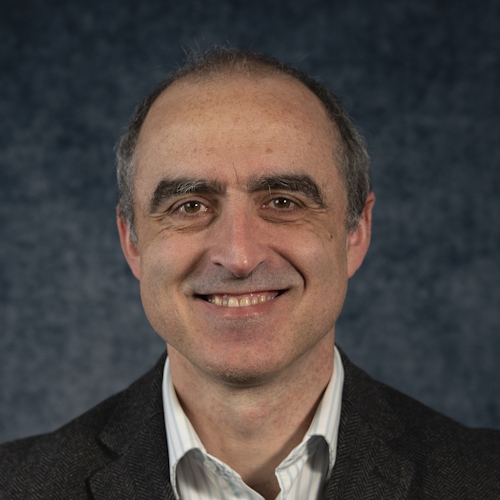
Professor Ian PriorUniversity of Liverpool 
Professor Ian PriorUniversity of Liverpool Ian Prior is Professor of Molecular Oncology and the Associate Pro-Vice Chancellor (Technology, Infrastructure and Environment) in the Faculty of Health and Life Sciences at the University of Liverpool. In 2022, he led the establishment of the Research Technical Professional career pathway at Liverpool that was the first in the sector to provide a university-wide solution for technical specialists. His role in this was informed by his leadership of Liverpool Shared Research Facilities that is a university-wide collective of 25 core facilities comprising ~100 expert staff. |
| 10:35-10:45 |
Title to be confirmed

Dr Aline Tabib-SalazarThe Institute of Cancer Research 
Dr Aline Tabib-SalazarThe Institute of Cancer Research Aline leads the Institute of Cancer Research's £1 million Wellcome Institutional Funding for Research Culture (IFRC) award. Through this they are i) piloting a scientific apprenticeship scheme as an alternative entry route into the technical talent pipeline and ii) designing and delivering two new multi-institutional training programmes to enhance the skills and knowledge of mid and senior level research technical professionals. Aline obtained her PhD in Biochemistry from the University of Sussex in 2012 before working as a research scientist at Sussex, Imperial, and ICR. Since her PhD, she has consistently sought to foster collaboration, working and publishing across multi-disciplinary teams and organisations. She aspires to enhance research culture, technical training, and excellence in the scientific community. |
| 10:45-11:00 |
Break
|
| 11:00-11:10 |
Supporting technical careers at the Crick
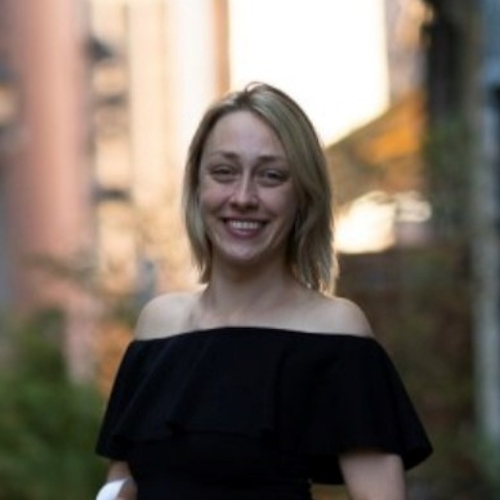
Amelia KowalewskaThe Francis Crick Institute 
Amelia KowalewskaThe Francis Crick Institute Originally from Poland, Amelia Kowalewska moved to the UK in 2016, after finishing her studies. Amelia worked in various roles, including laboratory support at the Barts Cancer Institute and as a research assistant at the Bee Sensory and Behavioural Ecology Lab, before joining the Francis Crick Institute in December 2022 as a Science Training Advisor. In her current role, she supports all researchers and science support staff with their various scientific training needs. Amelia also works closely with the technical community, focusing on the continuous improvement of opportunities available to them, in line with the Technician Commitment pillars. |
| 11:10-11:20 |
Supporting a new generation of technical talent: T Level industry placements as a strategic workforce pipeline for universities and research institutions

Joanne Hartley-MetcalfeUK Institute for Technical Skills & Strategy 
Joanne Hartley-MetcalfeUK Institute for Technical Skills & Strategy Jo is the Universities T Level Support Manager at the UK Institute for Technical Skills & Strategy (ITSS). An accomplished education professional with over 16 years of experience in senior leadership roles, she specialises in post-16 technical education. A former Director of Applied Qualifications, science teacher, examiner, and educational author, Jo brings a deep and practical understanding of the UK’s educational landscape. She is passionate about raising awareness of technical qualifications and their vital role in shaping technical careers and progression routes. Her work is driven by a commitment to building a sustainable technical workforce. As a dynamic speaker, Jo engages audiences with powerful insights into the importance of technical education and its impact on the future workforce. Her dedication to educational excellence and innovation fuels her mission to remove barriers, create opportunities, and empower the next generation of technical professionals. |
| 11:20-12:00 |
Panel discussion

Stuart EvansRolls-Royce plc 
Stuart EvansRolls-Royce plc Stuart Evans (BA Hons, Chartered FCIPD, CertPFS, CeMAP) is a commercially driven FTSE 20 People Director who is passionate about organisational & people development. Stuart combines futurology with a unique outlook on the human & technological capability development requirements of organisations to deliver sustainable commercial outcomes. Currently People Director – Future of Work, Capability & Learning at Rolls-Royce plc, Stuart has previously held similar positions at HSBC, QNB & Lloyds Banking Group – working in both the UK and overseas. Recent publications and awards include Stuart being featured in the ‘World Changers ’24’ report; having a published case study from Gartner on leadership strategy and winning the Brandon Hall Gold Award for Leadership Development in 2024. 
Professor Ian PriorUniversity of Liverpool 
Professor Ian PriorUniversity of Liverpool Ian Prior is Professor of Molecular Oncology and the Associate Pro-Vice Chancellor (Technology, Infrastructure and Environment) in the Faculty of Health and Life Sciences at the University of Liverpool. In 2022, he led the establishment of the Research Technical Professional career pathway at Liverpool that was the first in the sector to provide a university-wide solution for technical specialists. His role in this was informed by his leadership of Liverpool Shared Research Facilities that is a university-wide collective of 25 core facilities comprising ~100 expert staff. 
Dr Aline Tabib-SalazarThe Institute of Cancer Research 
Dr Aline Tabib-SalazarThe Institute of Cancer Research Aline leads the Institute of Cancer Research's £1 million Wellcome Institutional Funding for Research Culture (IFRC) award. Through this they are i) piloting a scientific apprenticeship scheme as an alternative entry route into the technical talent pipeline and ii) designing and delivering two new multi-institutional training programmes to enhance the skills and knowledge of mid and senior level research technical professionals. Aline obtained her PhD in Biochemistry from the University of Sussex in 2012 before working as a research scientist at Sussex, Imperial, and ICR. Since her PhD, she has consistently sought to foster collaboration, working and publishing across multi-disciplinary teams and organisations. She aspires to enhance research culture, technical training, and excellence in the scientific community. 
Amelia KowalewskaThe Francis Crick Institute 
Amelia KowalewskaThe Francis Crick Institute Originally from Poland, Amelia Kowalewska moved to the UK in 2016, after finishing her studies. Amelia worked in various roles, including laboratory support at the Barts Cancer Institute and as a research assistant at the Bee Sensory and Behavioural Ecology Lab, before joining the Francis Crick Institute in December 2022 as a Science Training Advisor. In her current role, she supports all researchers and science support staff with their various scientific training needs. Amelia also works closely with the technical community, focusing on the continuous improvement of opportunities available to them, in line with the Technician Commitment pillars. |
Chair

Dr Kelly Vere MBE
UK Institute for Technical Skills & Strategy

Dr Kelly Vere MBE
UK Institute for Technical Skills & Strategy
Dr Kelly Vere MBE, is the University Director of Technical Strategy at the University of Nottingham and a leading advocate for technical skills and careers in higher education and research. She began her career in 1999 as a Junior Medical Technician and now drives the strategic direction of the University’s 500+ technical colleagues. Kelly founded and leads the Technician Commitment, a sector-wide initiative promoting visibility, recognition, career development, and sustainability for technical professionals, with over 120 institutional signatories. She also led TALENT, a £5 million Research England-funded programme advancing technical careers, which included the TALENT Commission, a landmark study on the UK’s technical workforce.
Now leading the new UK Institute for Technical Skills & Strategy (ITSS), Kelly continues to champion the technical community, shaping policy and opportunities across the sector.
| 13:00-13:10 |
Introduction from chair and feedback from 3 April workshop

Dr Kelly Vere MBEUK Institute for Technical Skills & Strategy 
Dr Kelly Vere MBEUK Institute for Technical Skills & Strategy Dr Kelly Vere MBE, is the University Director of Technical Strategy at the University of Nottingham and a leading advocate for technical skills and careers in higher education and research. She began her career in 1999 as a Junior Medical Technician and now drives the strategic direction of the University’s 500+ technical colleagues. Kelly founded and leads the Technician Commitment, a sector-wide initiative promoting visibility, recognition, career development, and sustainability for technical professionals, with over 120 institutional signatories. She also led TALENT, a £5 million Research England-funded programme advancing technical careers, which included the TALENT Commission, a landmark study on the UK’s technical workforce. Now leading the new UK Institute for Technical Skills & Strategy (ITSS), Kelly continues to champion the technical community, shaping policy and opportunities across the sector. |
|---|---|
| 13:10-13:20 |
Careers presentation

Dr Hajra BibiUniversity of Dundee 
Dr Hajra BibiUniversity of Dundee Hajra Bibi recently completed a PhD in Life Sciences at the University of Dundee, where her research focused on protein degradation in CD8 T cells, supervised by Prof Doreen Cantrell. She also holds an MSc in Integrated Immunology from the University of Oxford and a BSc (Hons) in Applied Bioscience, completed through a degree apprenticeship with GSK and the University of Kent. Her academic path has combined rigorous scientific training with hands-on lab experience across both academic and industry settings. |
| 13:20-13:30 |
Careers presentation

Tyler Harvey-CowlishawUniversity of Nottingham 
Tyler Harvey-CowlishawUniversity of Nottingham Tyler Harvey-Cowlishaw is a laboratory technician at the University of Nottingham’s School of Life Sciences and a passionate advocate for science apprenticeships. She began her career as an apprentice laboratory technician, balancing hands-on scientific work with study—all while navigating the challenges of being a young mother. Her journey has showcased her dedication, resilience, and commitment to making science more accessible. As the founder and chair of the Science Apprenticeship Forum, Tyler actively supports apprentices and influences policy within the scientific community. Her efforts in championing apprenticeships have earned her notable recognition, including the Royal Society of Biology’s Apprentice of the Year Award (2022) and the Science Council’s Apprentice Ambassador Award (2023). Through her work, she continues to inspire and mentor the next generation of scientists. |
| 13:30-13:40 |
Careers presentation

Professor Andrew FilbyNewcastle University 
Professor Andrew FilbyNewcastle University Professor Andrew Filby is the first UK-based technical specialist to be appointed as a Professor of Practice; a paradigm shift in how non-academic technical staff are recognised and rewarded for their contributions to research and teaching. He is currently the academic director of the Cytometry and Single Cell platform at Newcastle University in the UK and leads one of the crosscutting research themes within the Faculty of Medical Sciences focused on “Innovation, Methodology and Application” (IMA). Professor Filby also serves on the directorate of the Newcastle University Centre of Excellence (NUCoRE) in Biomedical Engineering. He specialises in single cell technologies and their applications in human development, health and disease. He is also a former International Society for the Advancement of Cytometry (ISAC) council member and former “Shared Resource Laboratory Emerging Leader”. In 2019, Professor Filby was the recipient of the Royal Microscopical Society (RMS) medal for Flow Cytometry-based research and in 2021 he was awarded the accolade of “Outstanding technician of the Year” by the Times Higher Education magazine; the “Oscars” of UK Higher education. He has worked with flow cytometry for over 20 years and obtained his PhD from the National Institute for Medical Research (NIMR) registered to University College London (UCL) in Molecular and Cellular Immunology. He has worked in academic roles, industrial roles (both commercial and pharmaceutical) as well as in the shared resource laboratory (SRL) environment. He has maintained a very active research and method development programme while working in the SRL environment and writes and secures his own competitive grant funding. He publishes his methodological developments and collaborative studies in several high impact journals and is a member of the Human Cell Atlas (HCA) initiative. He serves on two of the largest UK-based funding panels for enabling technologies (MRC and BBSRC), playing a key role in developing funding policies for multi-user equipment and more recently co-chairs the Technical Council as part of the new Research England-funded Institute for Technical Skills and Strategy (UK-ITSS). |
| 13:40-14:00 |
Panel discussion

Dr Hajra BibiUniversity of Dundee 
Dr Hajra BibiUniversity of Dundee Hajra Bibi recently completed a PhD in Life Sciences at the University of Dundee, where her research focused on protein degradation in CD8 T cells, supervised by Prof Doreen Cantrell. She also holds an MSc in Integrated Immunology from the University of Oxford and a BSc (Hons) in Applied Bioscience, completed through a degree apprenticeship with GSK and the University of Kent. Her academic path has combined rigorous scientific training with hands-on lab experience across both academic and industry settings. 
Tyler Harvey-CowlishawUniversity of Nottingham 
Tyler Harvey-CowlishawUniversity of Nottingham Tyler Harvey-Cowlishaw is a laboratory technician at the University of Nottingham’s School of Life Sciences and a passionate advocate for science apprenticeships. She began her career as an apprentice laboratory technician, balancing hands-on scientific work with study—all while navigating the challenges of being a young mother. Her journey has showcased her dedication, resilience, and commitment to making science more accessible. As the founder and chair of the Science Apprenticeship Forum, Tyler actively supports apprentices and influences policy within the scientific community. Her efforts in championing apprenticeships have earned her notable recognition, including the Royal Society of Biology’s Apprentice of the Year Award (2022) and the Science Council’s Apprentice Ambassador Award (2023). Through her work, she continues to inspire and mentor the next generation of scientists. 
Professor Andrew FilbyNewcastle University 
Professor Andrew FilbyNewcastle University Professor Andrew Filby is the first UK-based technical specialist to be appointed as a Professor of Practice; a paradigm shift in how non-academic technical staff are recognised and rewarded for their contributions to research and teaching. He is currently the academic director of the Cytometry and Single Cell platform at Newcastle University in the UK and leads one of the crosscutting research themes within the Faculty of Medical Sciences focused on “Innovation, Methodology and Application” (IMA). Professor Filby also serves on the directorate of the Newcastle University Centre of Excellence (NUCoRE) in Biomedical Engineering. He specialises in single cell technologies and their applications in human development, health and disease. He is also a former International Society for the Advancement of Cytometry (ISAC) council member and former “Shared Resource Laboratory Emerging Leader”. In 2019, Professor Filby was the recipient of the Royal Microscopical Society (RMS) medal for Flow Cytometry-based research and in 2021 he was awarded the accolade of “Outstanding technician of the Year” by the Times Higher Education magazine; the “Oscars” of UK Higher education. He has worked with flow cytometry for over 20 years and obtained his PhD from the National Institute for Medical Research (NIMR) registered to University College London (UCL) in Molecular and Cellular Immunology. He has worked in academic roles, industrial roles (both commercial and pharmaceutical) as well as in the shared resource laboratory (SRL) environment. He has maintained a very active research and method development programme while working in the SRL environment and writes and secures his own competitive grant funding. He publishes his methodological developments and collaborative studies in several high impact journals and is a member of the Human Cell Atlas (HCA) initiative. He serves on two of the largest UK-based funding panels for enabling technologies (MRC and BBSRC), playing a key role in developing funding policies for multi-user equipment and more recently co-chairs the Technical Council as part of the new Research England-funded Institute for Technical Skills and Strategy (UK-ITSS). |
| 14:10-14:15 |
Introduction from the chair
|
|---|---|
| 14:15-14:25 |
Title to be confirmed
|
| 14:25-14:35 |
Title to be confirmed
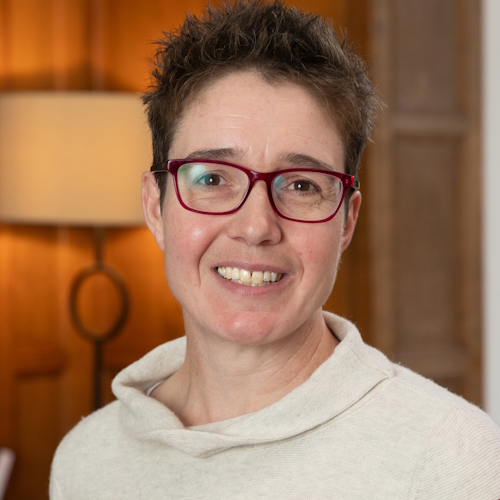
Professor Charlotte Deane MBEEngineering and Physical Sciences Research Council (EPSRC) 
Professor Charlotte Deane MBEEngineering and Physical Sciences Research Council (EPSRC) Charlotte Deane MBE is a Professor in the Department of Statistics at the University of Oxford and the Executive Chair of the Engineering and Physical Sciences Research Council (EPSRC). From 2022 to 2023, Charlotte was Chief AI Officer at Recursion (previously Exscientia), a biotech with ~450 employees, where she led its computational scientific development. She served on SAGE, the UK Government’s Scientific Advisory Group for Emergencies, during the COVID-19 pandemic, and acted as UK Research and Innovation’s COVID-19 Response Director. At Oxford, Charlotte leads the Oxford Protein Informatics Group (OPIG), who work on diverse problems across immunoinformatics, protein structure and small molecule drug discovery; using statistics, AI and computation to generate biological and medical insight. Her work focuses on the development of novel algorithms, tools and databases that are openly available to the community. These tools are widely used web resources and are also part of several Pharma drug discovery pipelines. Charlotte is a member of several advisory boards and has consulted extensively with industry. Additionally, she has established a consulting arm within her research group as a way of promoting industrial interaction and use of the group’s software tools. |
| 14:35-14:45 |
Title to be confirmed

Professor Andy LongNorthumbria University 
Professor Andy LongNorthumbria University Andy joined Northumbria University in August 2022, having served as Provost and Deputy Vice-Chancellor at Nottingham University. Previously he was Dean and then Pro Vice-Chancellor for Engineering at Nottingham from 2011-18, and also Chair of the Executive Management Group for Midlands Innovation, a partnership of the research-intensive universities in the region. He was also a Director of the Manufacturing Technology Centre (MTC), part of the High Value Manufacturing Catapult. Andy is currently a member of the Research England funded UK Institute for Technical Skills & Strategy Advisory Board. He was elected Fellow of the Royal Academy of Engineering in 2019. |
| 14:45-15:10 |
Panel discussion

Professor Charlotte Deane MBEEngineering and Physical Sciences Research Council (EPSRC) 
Professor Charlotte Deane MBEEngineering and Physical Sciences Research Council (EPSRC) Charlotte Deane MBE is a Professor in the Department of Statistics at the University of Oxford and the Executive Chair of the Engineering and Physical Sciences Research Council (EPSRC). From 2022 to 2023, Charlotte was Chief AI Officer at Recursion (previously Exscientia), a biotech with ~450 employees, where she led its computational scientific development. She served on SAGE, the UK Government’s Scientific Advisory Group for Emergencies, during the COVID-19 pandemic, and acted as UK Research and Innovation’s COVID-19 Response Director. At Oxford, Charlotte leads the Oxford Protein Informatics Group (OPIG), who work on diverse problems across immunoinformatics, protein structure and small molecule drug discovery; using statistics, AI and computation to generate biological and medical insight. Her work focuses on the development of novel algorithms, tools and databases that are openly available to the community. These tools are widely used web resources and are also part of several Pharma drug discovery pipelines. Charlotte is a member of several advisory boards and has consulted extensively with industry. Additionally, she has established a consulting arm within her research group as a way of promoting industrial interaction and use of the group’s software tools. 
Professor Andy LongNorthumbria University 
Professor Andy LongNorthumbria University Andy joined Northumbria University in August 2022, having served as Provost and Deputy Vice-Chancellor at Nottingham University. Previously he was Dean and then Pro Vice-Chancellor for Engineering at Nottingham from 2011-18, and also Chair of the Executive Management Group for Midlands Innovation, a partnership of the research-intensive universities in the region. He was also a Director of the Manufacturing Technology Centre (MTC), part of the High Value Manufacturing Catapult. Andy is currently a member of the Research England funded UK Institute for Technical Skills & Strategy Advisory Board. He was elected Fellow of the Royal Academy of Engineering in 2019. |
Chair
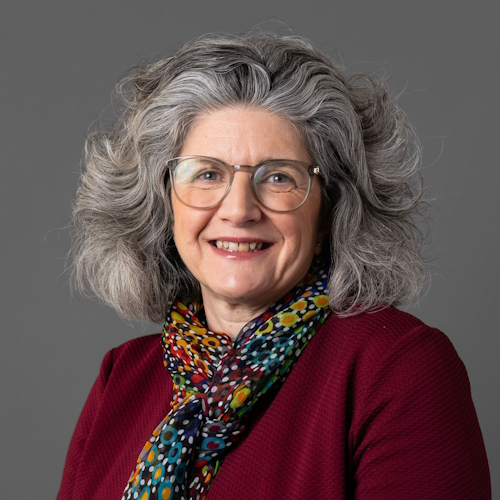
Clare Viney
Careers Research & Advisory Centre & Vitae

Clare Viney
Careers Research & Advisory Centre & Vitae
Clare took up the role of Chief Executive Officer of CRAC in October 2016. A strategic leader with over 25 years' advocacy, policy and external affairs experience, Clare is a Chartered Scientist and Chemist with extensive experience in the science community and not-for-profit sector. She is passionate about investing in future generations and those from diverse backgrounds and experiences, empowering people to realise their potential and achieve their career and development goals.
Prior to her role at CRAC Clare was with the Royal Society of Chemistry for 16 years in a variety of roles in membership, fundraising, science policy, communications and latterly leading Membership and External Affairs.
Clare has a BSc and MPhil in chemistry from the University of Sheffield and currently sits on the UK Institute for Technical Skills and Strategy Advisory Board, Chairing the Technician Commitment Steering Board. She is Chair of the cross sector Career Development Policy Group and External Advisory Board of the Department of Chemistry and Chemical Engineering of the University of Southampton. Plus an Advisory Board member of the following Research England funded projects; Prosper and Developing Business Aware Academics.
| 15:30-16:15 |
Panel discussion

Debbie JohnsonInnovate UK 
Debbie JohnsonInnovate UK Debbie Johnson is Head of Innovation Talent & Skills at Innovate UK, the UK’s Innovation Agency. Debbie’s role supports the innovation ecosystem as well as talent strategy within UKRI. Debbie’s role focuses on two goals: supporting innovative businesses in accessing and developing talent to realise the UK’s innovation ambition and ensuring that the education and skills system is supported in responding to the changes created by our innovation to maximise its potential for our economy and society. Prior to joining Innovate UK, Debbie was involved in the design and implementation of collaboratively funded, business-led skills programmes in the construction sector. 
John NicolsonUniversity of Cambridge 
John NicolsonUniversity of Cambridge John has worked for the University of Cambridge since 2008, initially as a Research Laboratory Technician in the Department of Earth Sciences looking at ocean sediment cores for palaeoclimate analysis. Over time the role evolved to specialise in looking after the stable isotope facility. In 2020 he took on the role of Technician Commitment Coordinator (initially as a part time secondment) to implement and shape the University’s response as a founding signatory to the Technician Commitment. After two years it became clear that the project needed more resource to affect change and now the team is expanding further. Michelle ReaGatsby Foundation Michelle ReaGatsby Foundation 
Dr Malcolm Skingle CBE, GSK

Dr Malcolm Skingle CBE, GSKMalcolm has BSc in Pharmacology/Biochemistry and a PhD in Neuropharmacology. He has gained a wide breadth of experience in the management of research activities and has more than 60 publications including articles on the interface between industry and academia. For more than two decades he has managed Academic Liaison at GSK managing staff in the UK and US. His role involves close liaison with several groups outside the company e.g. Government departments, research and funding councils, small biotechnology companies and other science-driven organisations. He sits on many external bodies and several UK university department advisory groups. He also chairs several groups including the Diamond (Synchotron) Industrial Advisory Board, the Science Industry Partnership addressing skill needs for scientists in England and the ABPI group working on academic liaison. Malcolm was awarded a CBE in the 2009 Queen’s Birthday Honours List in recognition of his contribution to the pharmaceutical industry as well as an Honorary Professorship from the College of Medical and Dental Sciences at the University of Birmingham and honorary degrees from the Universities of Dundee and Hertfordshire. |
|---|
| 16:15-16:30 |
Closing remarks
|
|---|
